Churchill’s, Jericho Jones & beyond interview with Robb Huxley and Danny Shoshan
Interview with two members of Churchill’s that formed back in 1965 in Tel Aviv. They later became Jericho Jones and then just Jericho. Churchill’s released a very good psych rock album back in 1968. Then came Jericho Jones with two hard rocking albums. Here is a complete story told by their guitarist Robb Huxley (he is actually 4th cousin of the famous writer Aldous Huxley) and Danny Shoshan who was the vocalist of the group.
Where and when did you grow up? Who were your major influences?
Robb: I was born in Gloucester, England on December 4th 1945. I am a 4th cousin to the famous writer Aldous Huxley who was well known for his novels Brave New World, a novel of the future and The Doors of Perception which was written as an account of his experimentation with psychedelics. This is where the band the Doors got their name. At around the age of 14 I became mesmerized by the new live rock shows that were being televised on the BBC on Saturday nights. These shows were The Six Five Special, Oh Boy and Drumbeat. They were live shows and the artists that inspired me were Cliff Richard, Billy Fury, Marty Wilde and Adam Faith. A few years later I was actually backing some of those artists when I played in the Tornados. My first American inspirations came from Elvis Presley, Buddy Holly and the Everly Brothers. Buddy Holly was the most important influence as I actually taught myself to play guitar from listening to his records.
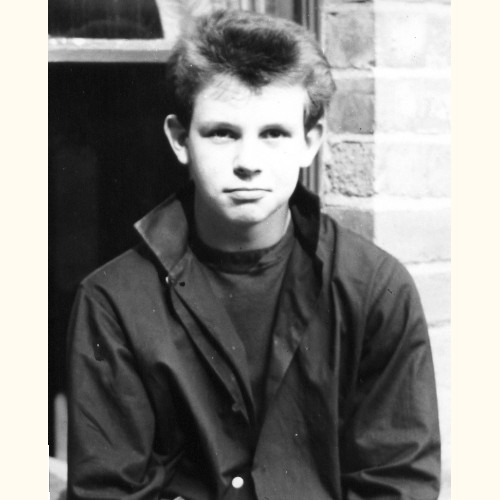
“Buddy Holly was the most important influence”
Danny: My musical background starts back in the sixties when I bought my first Hofner guitar; the one I was looking at for weeks and months in a window of the local musical shop and fell in love with until I’ve saved enough money and with the help of my dear father finally went to that musical store and got it, then my dreams became real for me!
I’ve started learning to play with the help of the best classical guitar player in Tel Aviv – Efraim Polack who himself was a student of the great Spanish flamenco guitar player Andre Segovia who was the master of flamenco in those days, he, after two years promised me to go on tour with him, no plans for a rock’n’roll future yet back then!
In the mid sixties 65/66 started to listen to the Shadows with Hank Marvin and really was moved all over by the guitar sound they’ve produced and the precision of the total huge sound by them! In those days I had a friend in my neighborhood. Eli was his name who was playing kind of rhythm guitar so naturally I’ve started playing the lead part of the Shadows music like “Apache”, “FBI”, “Frightened City” and many more… We’ve started to make a little name for ourselves and got invited to play in local parties and small events. We were just the two of us first and later on got more members to joining us and became a 4 members. Myself on lead guitar, my friend Eli switched to bass guitar, a keyboard player Yossi and a drummer named Freddy. So my very first real band came alive and started in 67/68 and even got a name “The Diamonds” yeah a real shiny name.
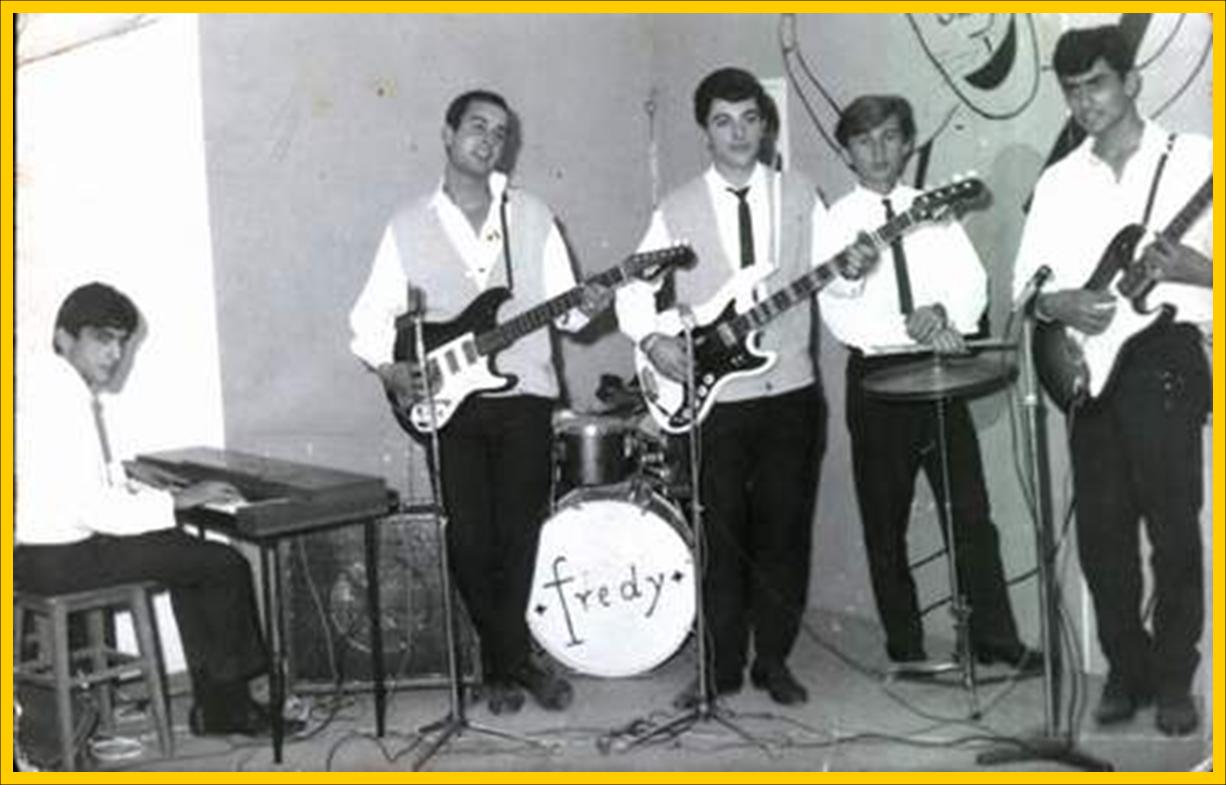
Wow, that was awesome! We only played instrumental guitar music till much later that I’ve discovered I could sing too but by then I started falling in love with the bass sound and bass guitar really strongly then my first real influence and model to my next music love and next step to my carrier was no other then Paul McCartney. So I got myself together and determined to study the bass guitar and practice to play the bass and sing and that’s what I did. Sat down in my private room at my parents’ place and practiced for a couple of years and really in those times they were not really many musicians who could sing and play bass it was quiet unique so my reputation started spreading around about this young kid who can play the bass and sing…
Apart from being in love and very much influenced by British pop and rock music and certainly American rock’n’roll music like Chuck Berry, the soul style of The Temptations and Otis Reading. I loved as well and had a special ear and love for harmonies style singing and my favorite band was then “The Beach Boys”, especially the track “Good Vibrations”. That was a killer as far as I’m concern, a masterpiece of all times and of course listening to all this kind of music made me different then a typical Israeli musician singer who is supposed to sing local Israeli songs and Hava Nagila you know, ha ha ha…
“All of that mixture of sounds and styles of music helped me create my own style”
Anyway all of those styles of music I loved and learned to sing and play the bass part as well and figured out the harmonies, but equally on top of all that there was another kind of music I’ve heard at my parents’ home from young age. That was oriental music. My parents were listening at home some kind of North African music with beautiful rhythms and amazing sounds and very interesting musical progression. I learned to love totally different from European music I knew and understood. All of that mixture of sounds and styles of music helped me create my own style and sound in my own music that I wrote much later in my career and helped me express my inner vision of musical creativity rock – blues with oriental riffs played on rock blocks played on electric guitars.
The next time you listen to Jericho I’m sure you’ll recognize the musical elements I’m talking about.
Anyway back to the previous subject, there was a band in Israel we all rock and pop lovers in those days 1967/8 loved very much called “The Princes” and sometimes in weekends we musicians got together and went to see them perform in a bar downtown in Nathania city or in a kind of club down the beach about 30 km from Tel Aviv. They were really the best band around in that time. We admired them very much.
So once in awhile I used to go and see them and enjoy them very much until one day much to my surprise I got a phone call from the lead singer of the band, Shmulik asking me if I was free from any obligations, of course I replied and asked for the reason of that question and he answered: “We, actually the whole band had a meeting and decided to ask you to join the band as the bass player and vocalist”. Their bass player decided to move to Denmark for an unlimited time…
Can you imagine how I felt? It’s like being asked to join the Beatles!!!
I spent about 3 years with The Princes; the best years of my musical developments and we did some amazing things together. After a year together we decided we were good enough to move and try our luck in Europe, Germany and two weeks later after landing in Hamburg looking for a place to play…
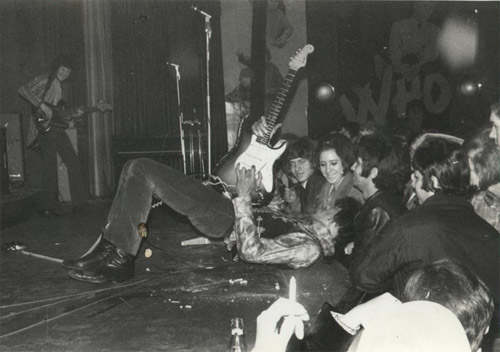
We want to make just enough money to survive and at least being able to eat!!! Unbelievable surprise came to bus. Our manager came back to the hotel where we stayed and gathered us and he gave us the news: “We got a contract as a house band for 3 month in “Star Club” Hamburg, the best club in town where the Beatles got famous in 1965; a hall of rock to all British bands like Cream, Dave Dee, Dozy, Beaky, Mick & Tich… Jimi Hendrix came over to perform in Star Club on one of the weekends and we the Princes were his support band…Amazing experience I will carry my whole life and the greatest gift of all played with him on the same stage talked to him and even took a photo with him!
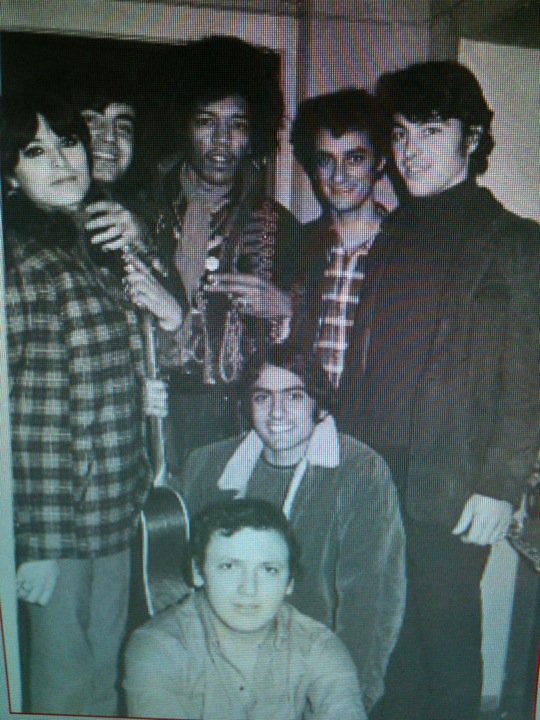
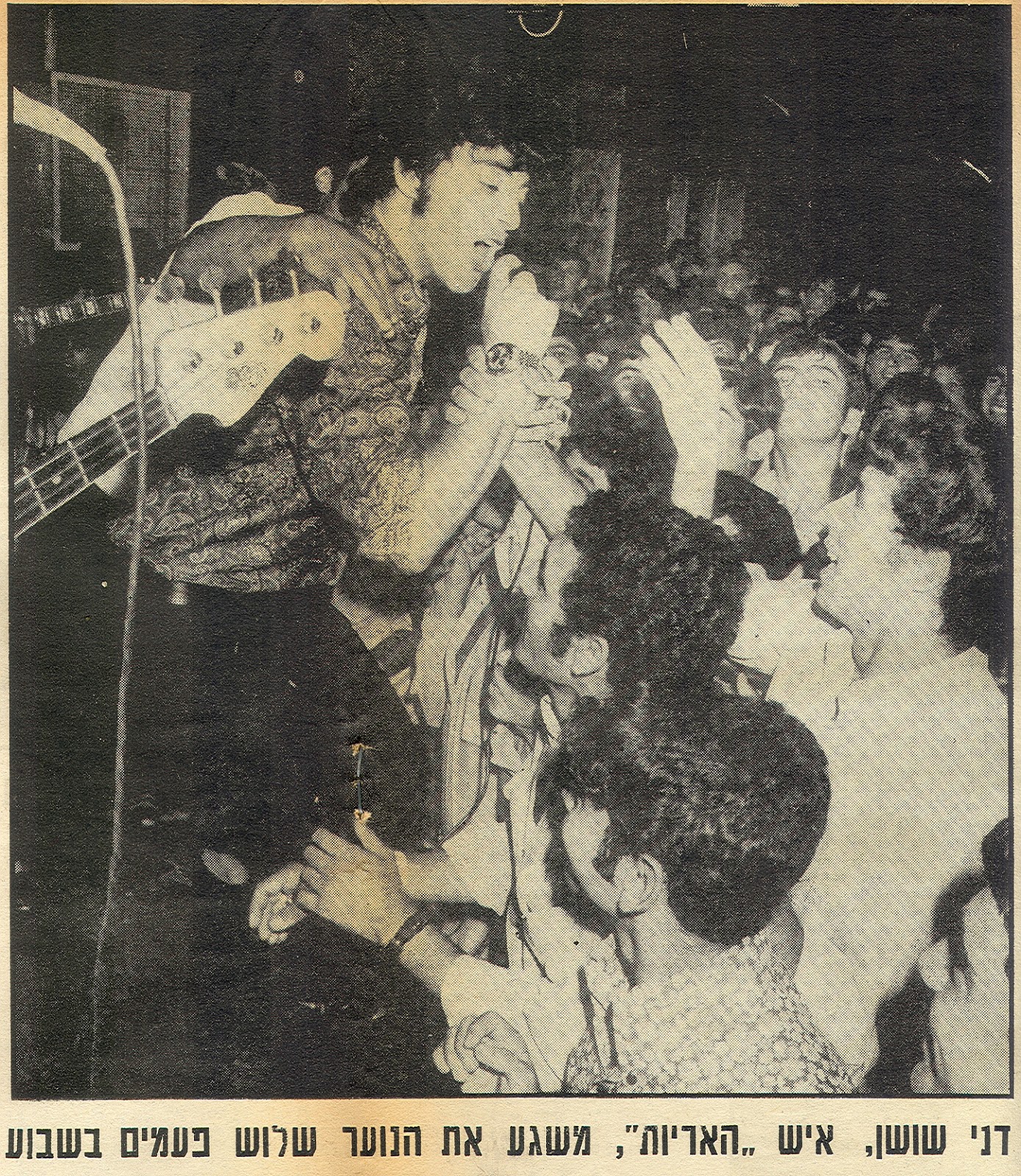
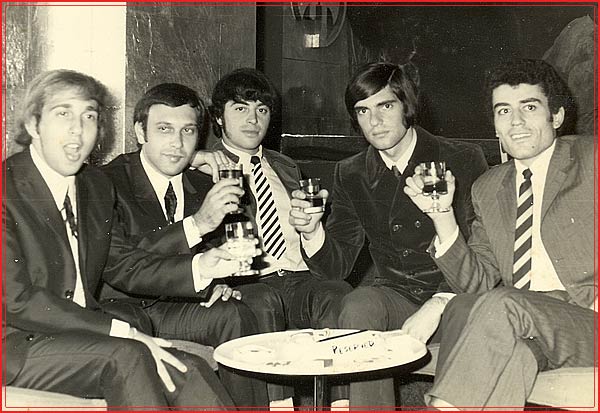
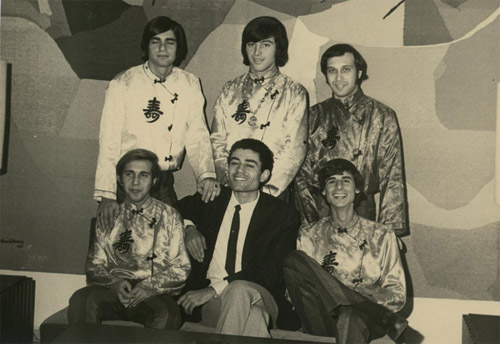
Robb I know you were in many bands before Churchill’s. Robb Gayle & The Whirlwinds, The Saxons, The Tornados and Purple Ass Baboon. What’s the story behind The Whirlwinds and The Saxons?
Robb: The first band I ever played in was the Vendettas which consisted of piano drums and guitar. We had no bass player and I was the singer.
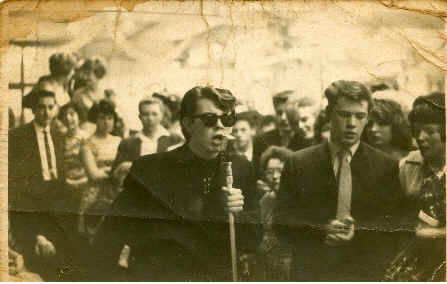
We played in the Forest Of Dean in Gloucestershire at a pub called the Courtfield Arms. Below is an excerpt from my website which tells how I joined the Whirlwinds and became Robb Gayle.
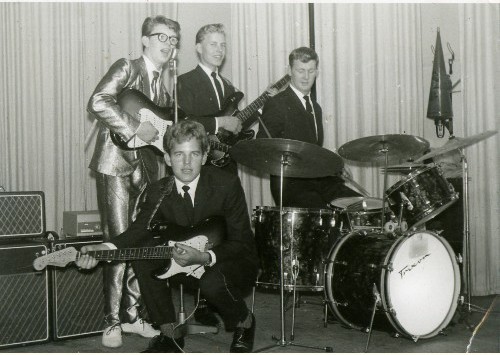
Well, Sunday night came and we were playing our usual gig to a full house. During the break three guys came up to me and introduced themselves as Roger and Peter Holder with their older brother Mick who was their manager. They told me that they had a band called the Whirlwinds, that they had the same gear as the Shadows, Fender guitars and Vox amps, and that their singer Max Swift had recently quit the group. They asked me if I would like to come to a practice session. I was quite impressed with their story, especially the part about the gear. I figured if they could afford Fender guitars they must be pretty good. They bought me a pint of cider and I agreed to go along to the practice the next week.
Roger Holder picked me up at 7 o’ clock that Tuesday outside of Moreland’s match factory which was on the Bristol Road near to where I lived. He had a minivan and showed up with his girlfriend. I had to sit in between them on the emergency brake as there were only two seats in the front of the van. Roger was a real fast driver and we soon got to Newent and shortly to Dymock. We turned into a small country lane at John Devereux’s house and followed it until we came to a farmhouse called the Welsh House. Adjacent to that building was an old barn and as we got out of the car I could hear faint sounds of electric guitars and drums.
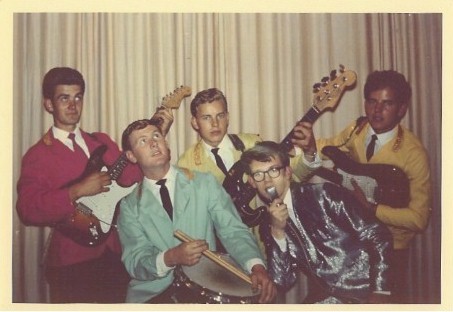
We entered the room and sure enough there were the Vox A.C. 30’s and Fender Strats. Roger introduced me to rhythm guitarist Pete Awford and drummer Brian Peachey. Brian, I recognized at once as he had attended the same school as me but was a little older. Of course Pete Holder was there and he played lead guitar on a custom left handed Strat. Mick Holder the manager and younger brother Derek were also there. We decided to start with How Do You Do It by Gerry and the Pacemakers, followed by various numbers by Cliff Richard, Buddy Holly and Elvis Presley. I remember we also did This Time by Troy Shondell and Please Please Me by the Beatles. Having got these songs down everyone was pleased with the way things sounded and I was asked if I would join the band as lead singer. I was happy to accept their offer and agreed to join, explaining that I would have to honor a few gigs with the Vendettas if that was ok with them. That was no problem so we went on to discusses the format of the band. The Whirlwinds played a lot of instrumentals such as Apache, by the Shadows, Telstar and Riding the Wind by the Tornados and Pete Awford also sang a few numbers, so it was agreed that I would come on to do the other vocals after they had played the opening numbers. We also talked about getting me a special shiny suit to wear. All in all the first rehearsal went along very well. Later that night as I got into bed in the little back bedroom in Clegram Road I thought to myself “What name goes with the Whirlwinds? I knew for sure that Huxley wouldn’t fit but just as I was drifting off to sleep; it popped into my head, Gale, no Gayle, yes Robb Gayle and the Whirlwinds.
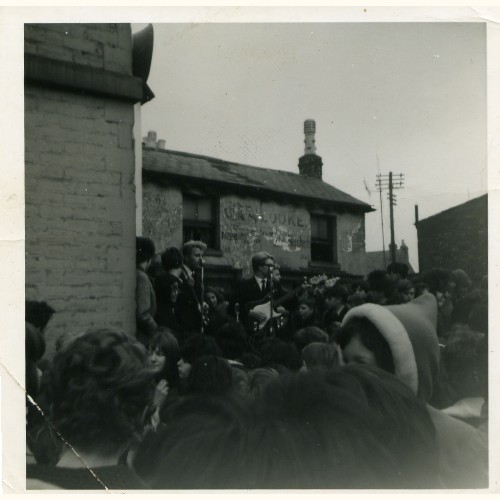
The Saxons were just a continuation of the Whirlwinds and the name change was suggested by Joe Meek at one of our early recording sessions with him. See the excerpt below of how it happened.
At the end of the session we sat around talking with Joe and the conversation got around to discussing the possibility of what might happen if we had a record released. Joe said that if we got a hit we would all have to leave our jobs and move up to London and play as professionals, and wanted to know if we would do this. Of course we all said that we would, although we felt a little concerned about Brian Peachey our drummer as he had a good job and may not have wanted to take a chance. Joe said that we may have to think about changing the name of the band as he thought that Robb Gayle and the Whirlwinds sounded like they could be a skiffle group. We tried to come up with a few names but nothing sounded exciting until we found out that the Holder brothers had traced their family tree back hundreds of years and discovered that they were descendants of the Vikings from Scandinavia. One of their ancestors had actually founded the place known as Holderness on the east coast of England. We thought about the Great Danes, the Norwegians, and suddenly someone mentioned the Saxons, which sounded very appealing. We thought it was a good choice as the current trend with bands was to have names like the Beatles, the Hollies, and the Searchers so we decided to become the Saxons. Joe said that he would pay for us to get some sharp stage suits made and that we should have our hair bleached blond. In fact he insisted that the next time we would come to record we should all be blond. So that was the end of Robb Gayle and the Whirlwinds. We were now to become an all blond band wearing Beatle style suits, writing new songs based around Saxon themes and stories of the old days and even maybe wearing authentic Saxon clothing on stage, complete with helmets and horns!
What do you remember from the Tornados? You changed the name of the band to The New Tornados.
Robb: Joe Meek came up with the name The New Tornados, but we were never billed as the New Tornados we were always called The Tornados. There are far too many stories connected to what it was like to record and play with the Tornados but I have selected some excerpts from the Tornados story to give some idea to your readers.
We all met up at the studio to run through our new cabaret act for Joe to listen to. Dave sat at the Lowry organ, Roger, Pete and me stood in front of our amps each with a microphone that Joe had set up for us and John was over in the corner at his drum set peering out from behind the screens. We began to perform but Joe stopped the set and put his head around the door and said “What about the comedy?” At that point we started the comedy routine and played it through. At the end of the routine Joe virtually burst into the room with the biggest smile on his face, actually laughing out loud and clapping his hands with utter joy. We all breathed a sigh of relief. Any time that Joe burst into a room you never knew if he was going berserk and would scream and shout at you or what! We knew that we had pleased Joe and could all relax. We all felt good knowing that Joe felt good. Joe then proceeded to run downstairs to call up Harry Dawson at the George Cooper Organization to arrange for Harry to come over and see our cabaret act.
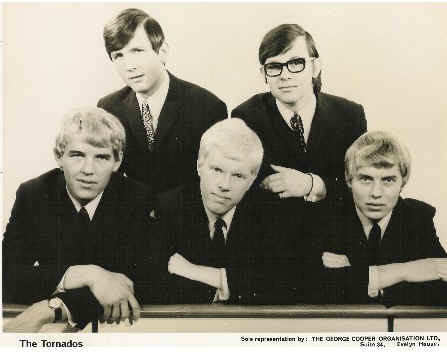
On the day of the audition Harry Dawson came over and sat in front of us up in the studio smoking his pipe and watched our complete cabaret act. At the completion Harry smiled at us saying “Very nice, boys” and went to talk with Joe in the control room. They appeared shortly with smiles on their faces and after Harry Dawson left Joe congratulated us telling us that Harry was very pleased with the set and that he would start to book us on the night club and working men’s club circuit up in the north of England. These venues usually ran for a week at a time. When we arrived at the working men’s club in Greasbrough, which in Old Saxon language means Grass or Grassy brook we found a hive of activity outside the entrance. As we approached the old guy that was on the gate directing the traffic asked “Are you artists, luv?” We were amazed by this as we had never been called “love” by a man before and found it quite amusing but soon got used to it in this new “Foreign Land” that we were exploring. The club had a large seating capacity inside but I remember the stage as being a bit on the small side. We set up our gear and made sure that everything was in good working order and went on to find a place to stay. We found rooms at some old Gothic looking hotel on the main street and were given some very good Northern hospitality such as tea and sandwiches by the proprietor and his wife. As it was a Sunday we did our show in the late afternoon. The place was hopping when we arrived and was full to capacity and the pints of Newcastle Brown were being downed with great fervor. We got dressed up in our new mod gear and took the stage to perform our first cabaret show. We ran through the Tornados hits and played “Pop Art Goes Mozart” together with our comedy routine and a few vocal numbers. In the middle of one of the vocals, some guy jumped up on the stage and grabbed my mike shouting “Stop, stop”. Thinking that there was some kind of emergency we immediately ended the number while the guy shouted into the microphone “Hot pies are now being served!” He then calmly handed the mike back to me saying “Thanks luv”. We all stood staring at each other with complete disbelief not quite knowing what to do. We had never been interrupted in the middle of a set before and we all found it embarrassing. Dave just counted the number in and we played it again wondering when the next interruption might come. Well we got to finish the set and we got a good reception from the audience. We got requests for an encore but not having anymore material that was suitable for cabaret we just played “Telstar” again. We stayed around to watch Kathy Kirby’s performance and she went over very well. The audience loved her and she received great applause when she performed her string of hits
Joe called us up to the studio one morning to tell us that it was time for us to put out a record and that he wanted to show us how we were to go about it. He said that he wanted to do a classical piece of music for the next Tornados release, He invited us into his living quarters where we sat down on Joe’s old creaky sofa which when you sat down on it your knees came up to your chin. Joe stood with his back to us and put on a disc of a movement by Mozart. As the music played Joe clicked his heels and jerked his head in time to the music. We were in a state of surprise and things really got bad when Dave, unseen by Joe, stood up just inches behind him and frantically pretended to conduct the orchestra. This forced us into a state of almost not being able to contain our laughter and at the end of the piece when Joe turned around to see our reaction nobody knew what to do with themselves. We just hoped and prayed that he would say something funny so that we could release the laughter that was bursting to escape from us, but he didn’t, so we all had to straighten up quickly. Joe proceeded to say that we should get some ideas from this piece, and take the gear up to our flat and create a new instrumental based on key parts of the song. We were all concerned about what we thought that Joe wanted to achieve. We had heard this Mozart piece a few times and with only the memory of this we were supposed to come up with a piece of music. “Don’t worry lads” Dave assured us “I know what Joe likes” and we went on led by Dave to create this classical sounding instrumental based on something that Joe had played us by Mozart. We created it up at our flat in Holloway Road but the session ended when the Irish family that lived upstairs knocked on the door warning us that if we didn’t shut up that they would call the police. Anyway to us it sounded like Joe would be pleased with it but we were wrong again
The following morning we all met up at the studio and got ready to record. Joe hooked everything up and said “O K play it for me” This was tough for us as we could hardly remember what we had done the day before. Anyway we got into it when about half way through the recording he turned off the machine, walked into the studio with his hand in the air, “No, no, no, that’s not what I meant” he proclaimed and led us back downstairs to listen to the Mozart record again. He played us a few specific parts saying that we should incorporate them into the tune. “You play this part first and then go into this part and follow it by this part and that’s it” Joe explained. With Dave’s leadership we got the main parts rehearsed. He perfected the melodies and helped us work out the chords and the bass lines. At one point in the recording Dave complained that due to the bad action on the piano he was not able to play a certain part correctly and was stumbling over some of the notes. If only he could play it slower it would be easier. With Joe’s expertise he slowed down the speed of the tape so that Dave could play the melody line an octave lower at a much slower speed. Pete also played a lead part but at the normal register. This was all done on the second tracking. When we heard the play back, the piano part sounded great as it had adopted a special sound .Also Pete’s guitar which was recorded slowly at normal register on a tremolo affect now sounded an octave higher resembling a mandolin Joe was obviously delighted with the results together with the praising that he got from the band, mainly Dave. “If anybody asks you how you got the sound on the keyboard tell them you used a Splatter Board Joe announced with a big smile on his face. Joe also had John Davies turn his bass drum over flat on the floor so it resembled a timpani drum. He loaded it with echo and had John beat on it throughout the piece in certain passages that Joe selected. We even put in the typical last verse, Tornados style vocal backing track. In the end Joe had created the typical Tornados single with the typical “Joe Meek” sound, receiving credit as writer, Trad. Arranged Meek; which was exactly what he wanted. Using a band of musicians and using their ability to provide a way to create what he felt and heard in his mind, Joe Meek created “Pop Art Goes Mozart”.
How do you remember Joe Meek?
Robb: I am able to give some insight as to what Joe Meek was like as a person. When I played with Robb Gayle and the Whirlwinds and Saxons and then the New Tornados I was involved with Joe for over two years. During that time I only ever saw Joe one time outside of the studio environment. That was when he made his yearly pilgrimage to Cinderford where he helped to raise funds for a facility for mentally handicapped children. He was accompanied by his mother who was partially crippled with arthritis.
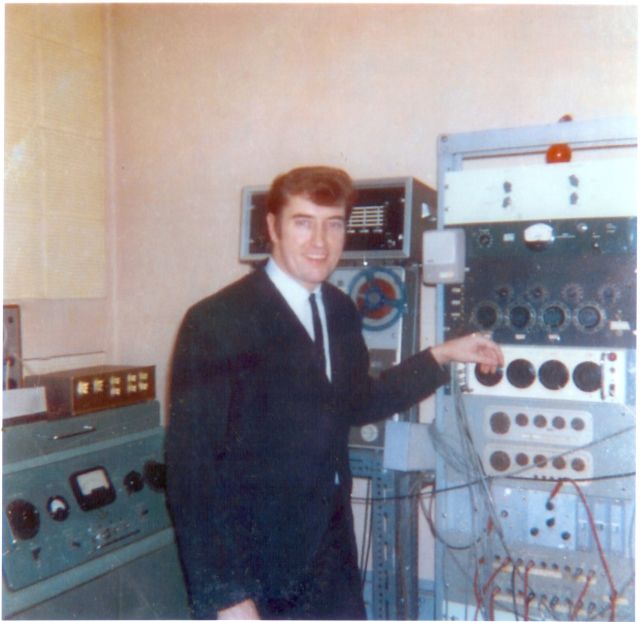
As the Tornados we performed at the function. It was a very happy occasion and Joe was very much liked and appreciated by everyone. He brought numerous records and items of interest that were either sold or raffled off in aid of the charity. He also arranged for us to play at the Aberfan Disaster charity event which was held in Cardiff. For those who do not know The Aberfan disaster was the catastrophic collapse of a colliery “slag heap” on October 21st 1966 which completely destroyed Pantglas junior school along with a farm and twenty terraced houses. Altogether 116 children and 28 adults were killed. At the charity function we as the Tornados became acquainted with the infamous Kray twins and Ronnie Kray first became interested in stealing us away from Joe. When Ronnie was told that we were under contract to Joe Meek he told us “Don’t worry we’ll take care of him.” Joe also paid for our group van to be repaired and bought our stage clothes for us. He always told us to be good to people and help whoever you can and it will come back to you in goodness. As to his temperament, the only time I ever saw a violent out break from him was after our first ever show as the Tornados when he called us to the studio and went mad because our keyboard player Dave Watts refused to play the Clavioline keyboard (that was used to record Telstar). He had a screaming fit and hurled a tray with a coffee pot and cups and saucers at the wall and stormed out slamming the door. There were probably only one or two other minor incidents apart from that. The rest of the time he was friendly, pleasant, polite and patient. We were always polite and courteous and he told us that he liked us and that we were not like many of the assholes that he was involved with. It didn’t matter how good a musician you were, if Joe didn’t like you he’d just get rid of you. Joe gave us our break into show biz when he called us to leave our jobs in Gloucester and Newent and become the New Tornados. We weren’t the greatest musicians Joe just made it happen because he liked us.
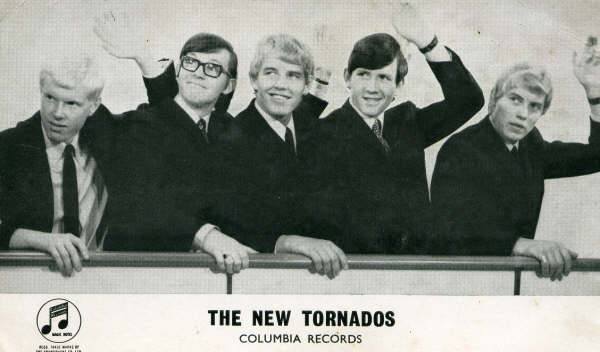
You had your last tour in Israel.
Robb: After a 6 weeks tour of Israel, in February 1968 the last reincarnation of Joe Meek’s Tornados came to an end.
We had been offered more work in Israel but the bass player and drummer declined to stay and returned to England. Keyboardist Dave Watts and I decided to stay because we thought that it would be a nice change to play in a warm and sunny climate for a while, get a different look at the music business in a foreign country and have a steady income.
You formed Purple Ass Baboon.
Robb: Purple Ass Baboon was like a band aid for me which helped me survive until I was able to join the Churchill’s.
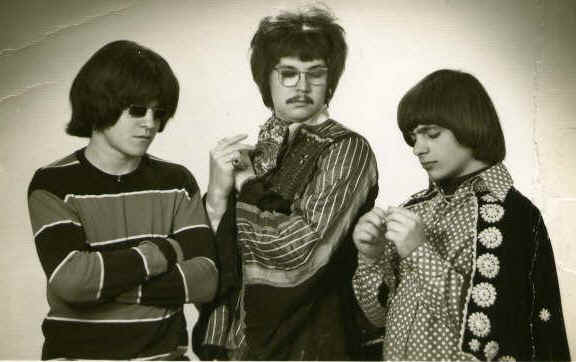
“Window shoppers can’t be found,
Nor will the Junkie Pimp be ’round,
As one might have guessed,
The street has been cleaned up,
There have been some big arrests,
The people tread to water pipes,
And pipes of snow white glass,
And hair is never found upon
That Baboon’s Purple Ass”.
Stan Solomon.
1968. Tel-Aviv Israel.
Dave said that Haim Saban (The Lions manager) wanted to talk to us and we met him down at café Noga which was where all the managers and promoters gathered along with an array of musicians and performers. When we got into the conversation Saban revealed that he very much wanted Dave to join the Lions. He explained that Dave had told him that unless Robbie could come too, he wouldn’t be interested. Saban went on to say that he had no problem with my performing abilities but in order for me to join he would have to let somebody go from the group and that was not possible. However he did tell me that he did have an opportunity for me in that another person was interested in putting together a band with me and a couple of Israeli musicians. His name was Shimon Feldman known colloquially as Gingie. He was the owner of the Cocos club and I had actually seen him a few times when we had played there. Saban felt that I could get paid about the same as we were supposed to be making every week with the Tornados whether the band worked or not. It turned out to be a weekly wage of 160 Israeli Lira which was equal to 20 pounds Sterling. When I asked about the musicians, Saban said that they were from a band called the Monsters and that they had played with us in Nazareth and that their guitarist and singer had quit the band. I then remembered the kids and how I felt that they were somehow a little different, but at the same time I had serious reservations of playing with a couple of sixteen year old kids who were not that great as musicians but still had something about them that showed promise. It looked like Dave was going to join the Lions anyway, so I began to realize that I didn’t have much of a choice. I told Saban that I would think about it although I knew inside that I was most likely going to go along with it.
When I told Stan the news about my offer and deal he was ecstatic. “Now” he said “you can stay in Israel and make enough money to live on and as soon as Selwyn and Churchill get called up for their service in the army I’ll get you into the Churchills”. A few days later I met Gingie along with Yaki and Moti from the Monsters. He outlined the deal and it was just like Saban said it was. Gingie said that we would be working in his club the Cocos, the Cheetah and various other venues around the country. He also mentioned that my two future band mates would not be getting paid. They were both living with their parents at home and didn’t have to support themselves. I didn’t think too much about that at the time but they had to have been paid something as I don’t remember them having day jobs. In his heavy Israeli accent Gingie said that I must show Yaki the “accords” and to meet them the following day at his club to rehearse at a “corner to three”.
Yaki and Moti showed up in a cab at the flat on King David Street the next day where we put my Marshall and Gibson in the trunk and drove over to the Cocos club. Gingie had given a key to Yaki so we let ourselves in and set up the gear. Yaki did not have a proper bass amp but was using one of Wally Garrett’s guitar amps instead. Later we decided that it would be better for him to use my Marshall 50 watt half stack for his bass as he claimed that Wally Garrett could modify the amp to be more suited to bass playing and I would play through the Garrett amp. We sat and talked to discuss the music that we would play. They were in agreement with me that they did not want to play all the same pop songs as all of the other Israeli groups and the choice of material was basically left up to me. I decided to choose whatever songs I thought would be appropriate from the Tornados repertoire and then include whatever other material I wanted to play. I was very quick to come up with some Hendrix and Dylan songs such as Red House, May this be Love, Just like Tom Thumbs Blues and Outlaw Blues. I showed Yaki the chords and bass lines and gave Moti the records to take home so he could perfect the drum parts. We ended up with a repertoire that would surely infuriate the audiences that we would be playing to.
Purple Ass Baboon continued to play a few gigs here and there, sometimes once or twice a week and sometimes not at all. We usually played in these out of the way places somewhere in the desert areas in dusty make shift night clubs. We had a driver and a roadie who would pick us up in a transit van and drive us to the venue. Some of these gigs were in real rough places. One night in a place near Beer Sheba we were constantly badgered by a group of young punks persistently asking for us to play The Letter by the Box Tops. I of course kept refusing their requests as every band in Israel was playing that song and although it was not a bad number I loathed it and would not play it. When the hecklers became more and more persistent our roadie set up two rows of chairs in front of the stage in order to keep them at bay and away from the stage. This pissed them off even more and they looked like they were beginning to threaten our roadie. We had just finished playing Outlaw Blues by Bob Dylan when Yaki looked at me across the stage and said “They’re still asking for The Letter”
“Oh tell them to get fucked” I answered. Yaki came back with “You don’t understand what they are saying” I said that I didn’t give a fuck what they were saying” “Well” replied Yaki with a worried look “They’re saying that if we don’t play it they’re going to throw all the chairs at us, beat the shit out of us and smash up all of our instruments”
I turned around to Moti who was sitting behind his drum kit and looking scared to death and I said “Ok, the Letter, one, two, three, four……….”Gimme a ticket for an aero plane”…………… That song saved our lives that night and we played it several times until the welcomed end of the evening. One good thing was that the Israeli punks at the front of the stage did warm up to us a bit more just as long as every third or fourth number was The Letter. I might add that we were also obliged to play “Here we go Loop-de-Loop”.
How did the audience react to your aggressive rock music?
Robb: Here is an example of how the music that we performed in Purple Ass Baboon went over with the Israeli audiences.
The most memorable gig was at Kolnoah Haen (Cinema Haen) which used to be on Dizengoff Circle. We were just one of several bands on the bill that night and were playing a short spot of maybe four songs. I stood in the wings and hung about the stage listening to and watching the other bands as we waited to do our spot. It was a series of Israeli bands that were all basically playing the same songs, with a few exceptions here and there. As always these bands were competing against each other to see who played the best renditions and the audience judged them accordingly with its show of appreciation. It was almost like a talent contest. The theatre was full to capacity without a single empty seat left in the house. The theatres, movie houses, clubs and cafés were always hopping. This was early 1968 and there was no television in Israel. It was still a radio society and reminded me of the early fifties in England before TV when every one’s life revolved around the radio.
When it came our turn to go on stage I knew that the audience would hate us. I refused Yaki’s request that we play the Letter and here we go Loop de Loop and told him and Moti that we should try to freak out the audience by not only what we played on stage but also what we did on stage. By our second number the audience was already very restless, talking amongst themselves and waving their hands in the air as if to ask “What is all this? They had been subjected to John Mayall and Jimi Hendrix and all kinds of screaming feed back from the guitar which was featured in the songs that they had never heard before. They had been totally thrown off balance. I chose the song that Stan and I had written together (Isn’t Life a Drag Sometimes) as the third song in our set. There wasn’t a snowball’s chance in hell that anybody in the audience would recognize that song. It was known only by the Baboon and Stan. The audience became highly agitated about half way through the number when we got into a free jam and I stood with my back to them in front of the Marshall demonstrating the Art of Feedback.
Cutting through the noise of feedback bliss I heard Yaki’s voice. As we met in center stage he shouted “Let’s fake a fight”. I knew what he meant and he began to push me and we locked guitars. We faked hitting each other with our guitars and began to shout “Fuck you” at each other with a background of guitar and bass feedback with Moti wiping out on the drums. The first few rows of the audience, mostly made up of young guys, were up on their feet. Fists were shaking in the air and shouts of “Kesev B’ Hazarah” (give us our money back) were ringing through.
Now we turned our aggression and frustration toward the audience, and engaged in a verbal exchange with them. I was shouting “Fuck you”, and they came back with “Fak yoo” As Yaki began to bang his bass guitar on the stage causing a booming feedback, Moti, who had suddenly got caught up in the excitement of the disarray, stopped playing and kicked his drum kit over the stage. The cymbals were crashing, and the tom-toms were rolling around. I stood my guitar in front of my amp and just let it scream. I caught sight of Moti’s drum stool that had come to rest by the mike stand. I picked it up and shook it at the audience. The guys in the front row, now up to the front of the stage were just begging me to throw it at them and were doing all they could to entice me into doing that. As much as I really wanted to throw the stool, when I heard Yaki’s voice behind me shouting “Don’t do it Robbie, don’t do it” I decided against it and threw it down onto the stage. Yaki and I unplugged, and as we slouched off the stage and I passed by the mike I couldn’t help saying a sarcastic “Thank you” to the audience. Needless to say we didn’t play a fourth number. The other groups that were still around back stage looked puzzled as they watched us put our guitars away. The bass player of one of the bands who were called the Fat and the Thin came up to me. He introduced himself as Gerard. He was a skinny Moroccan guy who looked almost oriental. I guess he was the “thin” part of the band. He said he understood the way we felt and how frustrating it was, but he said that the Israeli audiences would never accept any music that they had not heard before on the radio and that the only way to play whatever you want was to leave the country. He was right about that.
You joined them…
Robb: Around April or May of 1968 two members of the Churchills were conscripted into the Israeli army. They were both guitarists and singers. Their names were Selwyn Lifschitz and Itzhak Klepter. This opened up a door for me to get into the Churchills. Below is how it happened.
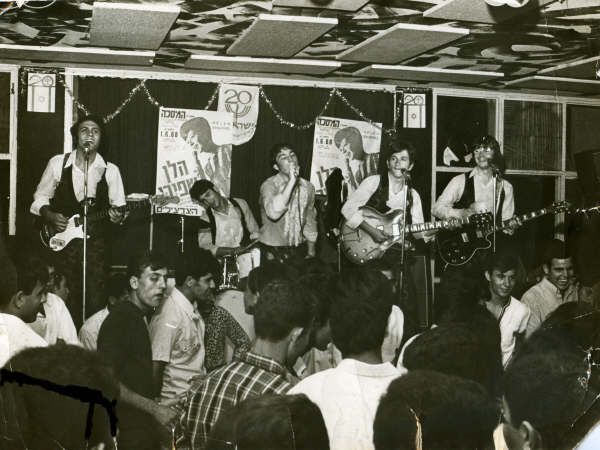
Yehuda Talit wanted to speak to me so I arranged to meet him at the Masakha club where the Churchills were rehearsing. Stan and I showed up that afternoon at the club. The pungent aroma of Shish Kabob and falafel from the diner down stairs permeated the air as we got out of the cab. We climbed the stairs and heard the distant sound of guitars and drums which became louder as we pushed open the door and walked into the club. I brought my guitar to run through a few numbers with the guys and laid it down on one of the tables. The band had just finished tuning up. Miki Gavrielov played bass, Haim Romano played lead and Ami Trebich sat behind them on the drums. Miki smiled and said “Hello, come and play with us man” so I wasted no time in getting out my beloved 335. Stan and I got up on the stage and decided to run through one of his soul songs. Miki ran through the chords with me and we started with My Girl. As I had seen the Churchills play several times I had some idea of how the music went and I caught on pretty quick. It was just like it was in the Saxons and Whirlwinds; we were knocking off other people’s hits. I felt at ease with that as unlike the other bands I had played with including the Tornados, I was not the lead singer and did not have to carry the band. My vocal contribution was back up singing.
Stan really wanted to have a stab at singing “All Your Love” – John Mayall and the Blues Breakers with Eric Clapton that I had sung in the Tornados. Stan and I had listened to that album several times and he had become quite familiar with that number. I showed the guys that it was basically a twelve bar progression in A minor that doubled up in the middle part and resolved back to the regular beat at the end. After a few tries we started to get it down and as the number progressed I noted how Miki and Ami played very well together which gave the band a good tight sound. Haim Romano, barely seventeen was already a very talented guitarist and picked up everything immediately. Just when we had “All Your Love” coming on nicely the door opened at the rear of the dance floor and in walked Yehuda Talit. He was six feet tall with tight curly brown hair wearing a white long sleeve shirt and gray slacks. He stood there for a few minutes with his hands in his pockets and his knees bending backwards until we stopped playing. He walked toward the stage “Shalom, shalom, shalom” acknowledging the band and without any reference to what we had played he said “Ok now play something of Stan’s”. We played “My Girl” which was all we had, which Yehuda stood and listened to with out expression.
The band took a break at that point and left the stage to join Yehuda on the dance floor. The conversation went back and forth between them in Hebrew leaving Stan and me with no idea what they were talking about. It was something that you got used to after a while. Presently they broke into English when Yehuda, after a few words with Stan motioned that he wanted to talk to me, we left the group and sat at a table. He asked me how I was and if I liked it here in Israel and did I want to stay here in Israel to which I replied that I did. He said that the boys had told him that they wanted me to join the group and asked if that was true that I did want to play with the Churchills and I told him “Yes”.
Then he asked me what about the Purple Ass Baboon and I told him that was over. “You know Gingie is asking me to pay him money for you, what about that?” he asked. My reply was that I had no signed agreement with Gingie and that he did not own me and I was not his to sell. “Ok” he said and as he began to stand up he asked me to get back on stage together with the band without Stan and sing “Sunny” which was a hit in Israel at the time and played by various bands there. The Churchills played it and Selwyn used to sing it. I explained that I did not know the song well enough to get up and sing it as I had only heard it a few times but he insisted, so I reluctantly gave a shot at trying to bluff my way through it while at the same time realizing that I was being put through some kind of an audition by Yehuda. All I knew was “Sunny, thank you for the lah, lah, lah, lah, lah……….” I felt uncomfortable and embarrassed that I was being put through this and was relieved when we stopped playing it. As I was coming down the steps at the side of the stage Yehuda walked up and said “Well Robb, if that’s what the boys want, you can play in the band, but I hope you’re going to be good enough to be in the Churchills” He shook my hand and after a few words with the others he left the club.
The last words that Yehuda had said to me left me feeling resentful. It had been unfair of him to audition me in that way. Was I good enough to be in the Churchills? Well at that point when Yehuda gave me his permission to join the band, that action would change his precious Churchills forever and put them on a road of musical discovery that would lead to them becoming an original band.
The next few days were full of rehearsals. We got Stan’s set down quickly and then settled into the task of plowing through the Churchills’ numbers which consisted of pop hits from various groups and for the most part the same music that was being played on the radio stations.
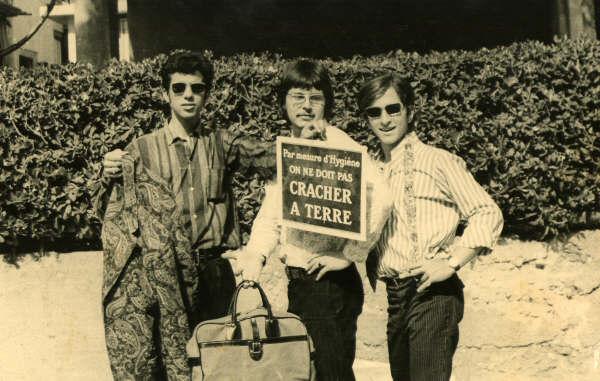
What’s the story behind your album?
Robb: Well yes the first side of the album was made up of songs that Stan and I wrote especially for the movie A Woman’s Case. The songs on the flip side were other songs that we had written. We also featured on that album a song based on an idea by composer and conductor Noam Sharif called Debka. Noam composed the melody and Stan and I wrote the lyrics. Meeting and working with Noam Sharif was a pleasant experience, he produced the song with Stan and came up with the Arabic musicians. The song starts with the sound of somebody smoking on a water pipe or Hookah and ends up with a discordant jam with Noam freaking out on the keyboard and the Churchills screaming and shouting. The noise and chaos only stops when a bomb drops and everything goes quiet. Recording that album was a great experience because it gave us the chance to be ourselves and to be creative and not have to conform to any kind of pop music rules. It was a very free experience for us. We were always having fights with the engineer and technicians as they had never recorded a real rock band before.
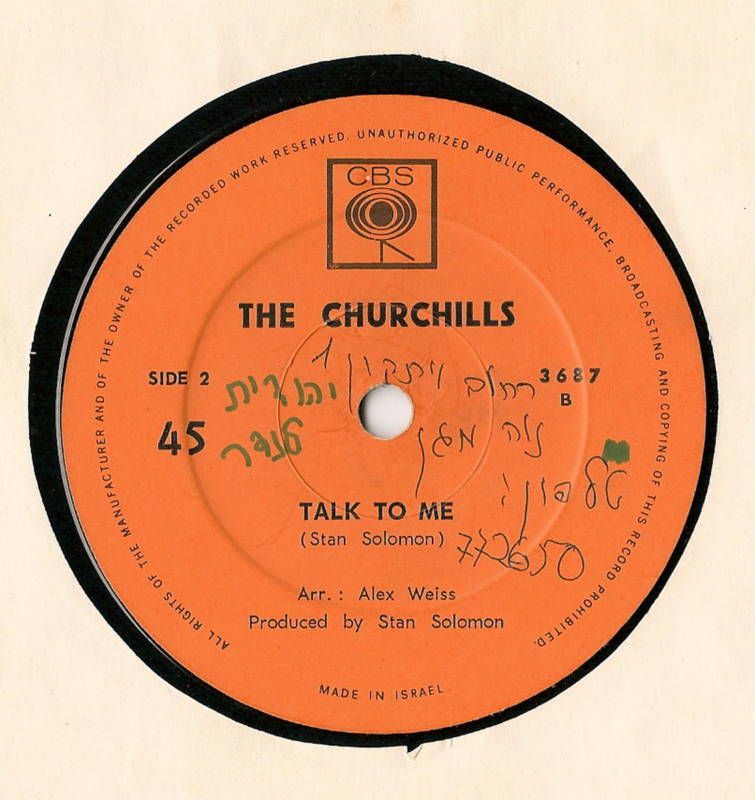
When we told them that we wanted to create a backwards track like Jimi Hendrix they almost fell on the floor and claimed that it couldn’t be done. Well they did it in the end but only after they lost the guitar solo which was played backwards. They lost it on purpose as they were ashamed that any one should hear this kind of music that was recorded in their studio. The song was So Alone Today. There was no concept to this album it was just influenced by what was going on at the time. If Jacques Katmoor had never approached us to write the music for the movie then the album would never have existed and many of the songs would never have been written.
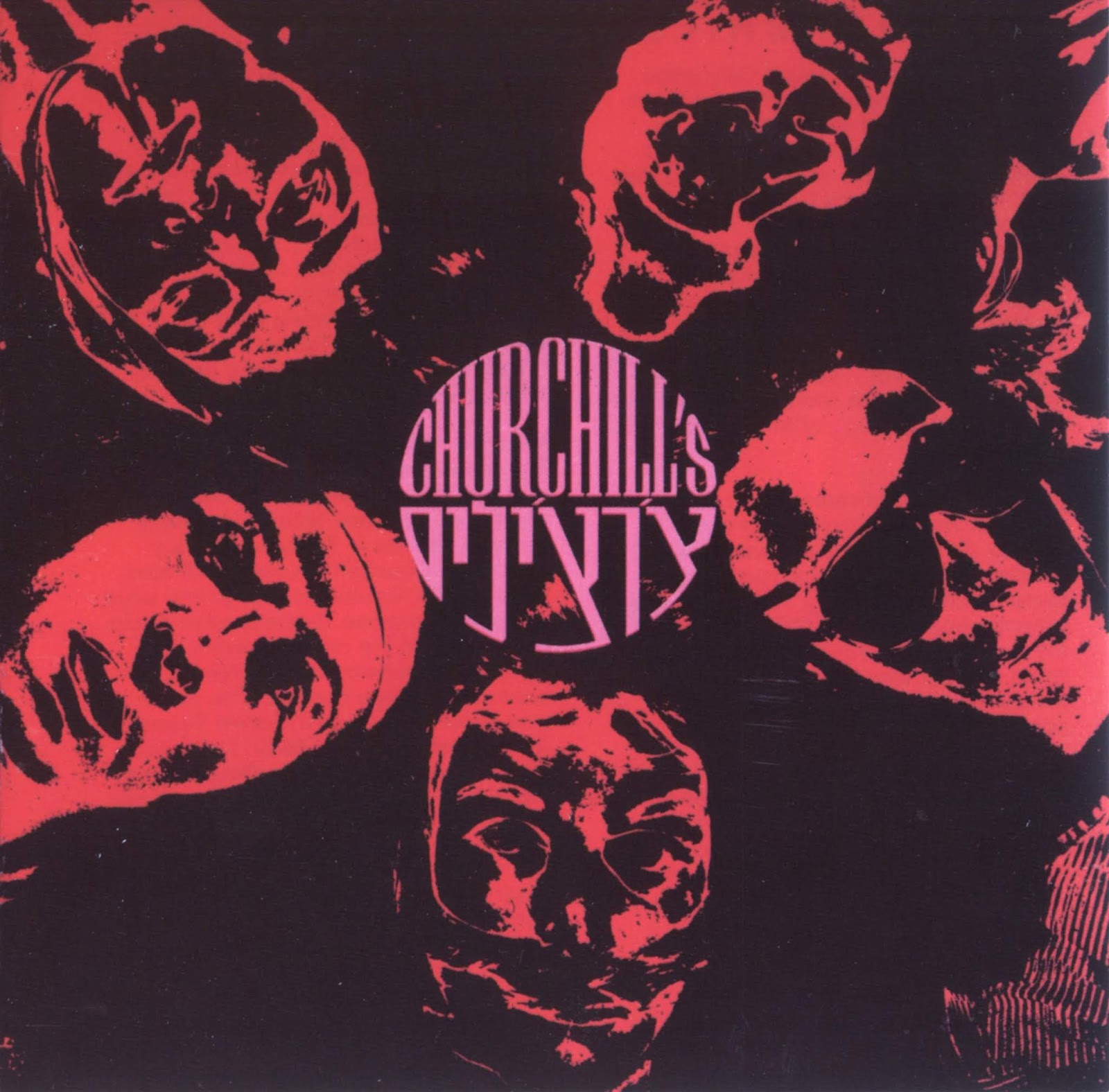
Hed Arzi released the album. Do you know how many copies were pressed? Is there any unreleased material?
Robb: Yes the album was put out by the Israeli record company Hed Arzi I am not sure of how many records were made in the first pressing but if I would have to make a guess that it might have been 1,000 copies It was made only for the Israeli market at that time and considering that the population of Israel at that time was only 2,000,000 it’s understandable that they had a limited pressing. The Israeli audiences had no idea what psychedelic music was and had no interest in it. All they wanted to hear was what the radios played and that was pure pop crap at the time; so how many records did they think they were going to sell? At this time there is no unreleased music by the Churchills, Jericho Jones or Jericho.
Where are all the other members of the band these days?
Robb: The lineups for the bands were as follows, The Churchills: Stan Solomon (vocals), Miki Gavrielov (bass, vocals) Robb Huxley (guitar, vocals) Haim Romano (lead guitar) and Ami Trebich (drums). When Stan Solomon left the band in 1969, he was replaced by Danny Shoshan. This line up carried over to Jericho Jones and Jericho until Ami Trebich and Miki Gavriellov left in 1972 and were replaced by Chris Perry. The band then became a four piece with Danny Shoshan taking over the bass guitar.
Today Miki, Haim and Danny all live in Israel. Miki is a very successful singer, songwriter and composer and has won many awards including a lifetime achievement award for his contribution to Israel popular music. Haim is a very successful session guitarist and bouzouki player also winning awards for his musicianship. Danny is the lead singer of a 15 piece band and performs all over the world. Danny continues to write his own music and is a recognized and well known singer and musician in his own right. A few years ago on the Jewish Day of Atonement (Yom Kippur) Ami Trebich died of a sudden heart attack at the age of 62. He is sorely missed by us all. Stan Solomon lives in retirement in Montreal and Robb Huxley; well I live in Miami Beach where I’m working on new music in cooperation with Danny Shoshan for a new Jericho album. I am also in the continual process of writing my memoirs of the bands. I perform here and there and sometimes travel to Israel for reunion shows. The rest of my time is taken up by my work in the Ice Cream Distribution business.
Were psychedelic drugs part of the band?
Robb: We did not do a lot of psychedelic drugs such as LSD or mescaline, just on rare occasions; they were not a part of our day to day regimen. With the exception of the heavy drugs we tried many things but our drug of choice was hashish as it was so readily available and inexpensive in the Middle East.
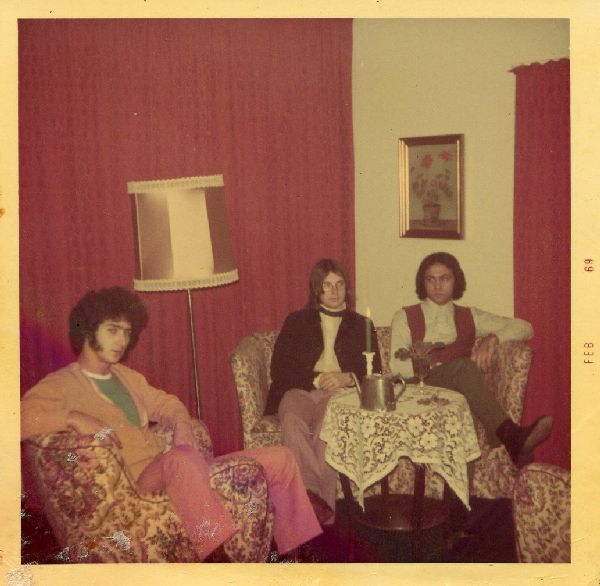
Would you share your insight on the albums’ tracks?
“Open Up Your Eyes”
Robb: Jacques Katmoor called up Yehuda requesting to see the band. We were invited to meet him at a screening studio in Tel-Aviv. His appearance was of a French style movie director. He spoke Hebrew and English with a French accent. He was of average build, casual dress with a well-trimmed full beard. After the usual chat was completed Jacques explained that he was making a modern style movie and wanted some exiting, weird unusual rock music to embellish the movie. I think he was trying to look for the word Psychedelic which is what he got from the Churchills. He took us into the screening room which was like a very small movie house where we sat and watched a few rushes of the movie. Jacques’ wife Elite Katmoor was the leading lady in the film. After we saw the excerpts we looked at each other and we got the impression that this was some kind of sex movie. I think that Jacques probably picked all those parts showing his wife naked to really get our attention and I guess it did. He told us that it was a modern movie of that time, showing a relationship between a man and a woman and in English would be called a woman’s case.
When Stan and I got back to the hotel I immediately picked up the guitar and we sat down together and talked about the movie. I thought and suggested that we should write something which would be a great opener for the movie. Something upbeat and lively something to make people open up their eyes and see what was going on. Stan starting talking about taking a look around you and we came up with Open up Your Eyes……… Faces, lips, and teeth and eyes and touch me girl and trip with me you’re not made of stone you respond to forces……Open up your Eyes. These were examples of the lyrical styles of Stan Solomon. I helped with the melody and got the chords down. It was initially called Take a Look around You but we dropped it in favor of Open up Your Eyes.
“Song From the Sea”
Robb: With the completion of Open up your Eyes under our belt the songs began to pour out of us. Our writing sessions were paying off. Invariably Stan would hear me playing a riff on the guitar and he’d say “Wait, wait, play that again Robbie and he and I would build a song around it. Songs born out of those situations were Song from the Sea and Comics. With Song from the Sea I started playing a kind of jazzy, classical riff which led into a Jim Morrison related feel and lyric which I believe that Stan picked up from Moonlight Drive by the Doors. Likewise Comics came from a riff I had messed around with from an instrumental we had put together back in Robb Gayle and the Whirlwinds called The Freak, which we kinda borrowed from an instrumental we had heard called Chop Sticks. Stan’s lyrics although very simple, reflect the duality of the band’s inability to play its own music; due to pressure from management and demands of its audience and also Stan’s personal life where he had been guided into a career of dress design and manufacture by his family and to show his rebellion against this he was singing in a rock band in Israel.
“Picture in My Mind”
Robb: Stan and I were always up all night long either writing songs or drawing with felt tips or making collages or writing poetry and Pictures in my Mind came from that. We were sitting one night and I said to Stan, “I’m painting pictures in my mind” and the whole song came from that. It’s a pretty, poppy little song about psychedelic experience that is short because we were told to make the song a specific length for the movie.
“Comics”
See “Song From the Sea” commentary.
“Where You’re Gone”
Robb: While sitting alone one night after putting Efrat (my then girlfriend now my wife) in a taxi I came up with When You’re Gone, a song that I wrote for her. I had been playing around with a few ideas when we lived in Moshe Ben Ezra Street which had come to me after walking Efrat home one night. When I returned I sat on my bed feeling sad that Efrat was not still there with me and I investigated the thought that she could have no idea of the way that I felt when I was missing her when she was not there, hence You don’t know how I feel in the morning when you’re gone. Now at Nes Ziona it all came to me and fell into place as I included lyrics related to Efrat and me and how we were two different people of different religions and different upbringing and it was all very exotic and exciting for me.
“Strangulation”
Robb: This song was basically written by Stan with help from Miki Gavrielov who played guitar and came up with the riffs. Some of the songs that Stan wrote the lyrics to were about a Danish girl called Birit he had met in Tel Aviv. He was very much in love with her but she left him for a drummer from another band. He was devastated. The song was called Strangulation because the woman in the movie A Woman’s Case gets strangled at the end of the movie.
“Straight People”
Robb: It was a song I started to write when we were travelling through Italy in 1968 on our way to Denmark. It’s obviously Doors influenced and it’s a hit at the entire noisy, square, run of the mill people who we came in contact with. Stan and I finished it when we returned to Israel. We mixed several conversations together at the end fade out and ran them at different speeds.
“Subsequent Final”
Robb: I wrote Subsequent Finale one night when I was alone at the hotel. I had been playing around with a new chord that I had discovered by accident. It had open strings in it so it had a bright ringing sound to it. I also discovered that if you slid your fingers down a tone it also gave a similar sounding chord with the same open strings. The jangly sound and the chord progression really turned me on and I played it over and over again. The words that first came to me were “If you really love me girl won’t you please come on home” but I could get no further than that. I remembered that over the past few days I had been scribbling down a few lines that had come into my head. I was imagining myself as a junky sitting on a bench in the sun and thinking about things. When I tried the words with the chord progression they wouldn’t fit until I changed the rhythm pattern and suddenly I had “The screaming soaring waves of my mind are thinking of seagulls by the sea”. To write and complete the rest of the lyrics came to me relatively quickly and easily. Then came the idea of combining some kind of Middle Eastern influence together with what I had come up with and by the time Stan came in it was as good as finished. While he sat on his bed, rolling a joint on the back of an album cover I played him the song. “Huxley you’re a fucking genius, show me those lyrics” he exclaimed with delight. He asked me to play it again and he picked up the melody from me and very soon he had it down and holding the scraps of paper in his hand he interpreted the lyrics in great form. We ended up playing it over and over again until we got tired and finally as the sun was coming up we rolled off to bed.
“So Alone Today”
Robb: We were very much influenced by Hendrix’s use of backward guitar and drum tracks so when Stan and I wrote So Alone Today we thought we would do a backwards version. As I mentioned before we ran in to a lot of problems with this track at the studio. The engineers really believed that we were crazy and they deliberately sabotaged the track when they lost the backwards guitar solo track. The song has a kind of cold “lost in space” sound and Stan is writing about Birit again here.
“Debka”
Robb: At first when Stan and I were told that a classical musician and conductor Noam Sharif had written a melody called Debka and wanted to feature it on our album with our lyrics we were not that thrilled. When we met Noam we changed our minds and he turned out to be a very hip and pleasant person to work with. The initial idea was that we were supposed to write lyrics about Debka which was a fictitious dance craze sweeping through the Middle East hence “Come Debka, Debka with me”. Stan and I didn’t go for that and came up with serious lyrics. I was reading the Tibetan Book of the Dead at the time and that reading shed an air of mystery and mysticism over the song while people were doing the Debka and dancing circles under a tree.
Arik Einstein had a hit “Akhi Noam”, (eng. When You’re Gone). This was written by you for the Churchills. Tell us about Arik. You became his backing band, how did that happened?
Robb: Arik Einstein although now basically retired from the music business in one of the top 30 most famous people in Israel, right up there with Ben Gurion, Golda Meir and Moshe Dayan etc. In the early 70’s he decided to change his style from classic Israeli folk and traditional music to pop and rock. He was looking for a rock band to back him and as the Churchills were the most progressive rock band in the country he decided to use us as his live backing band and for many of his recordings his session band. We performed regularly with him, opening up for him and played some tracks on his next album which is now claimed to be the first ever rock album performed in Hebrew. He had heard the recordings from our album and liked very much my song “When You’re Gone”. He got Yonatan Geffen (an established Israeli lyricist) to write the Hebrew words to the song. It became a big hit for him. I also collaborated with him on an album of children songs which was made up of some of his own compositions together with several of my own compositions. We parted company with him when we became Jericho Jones. I last saw him in 2002.
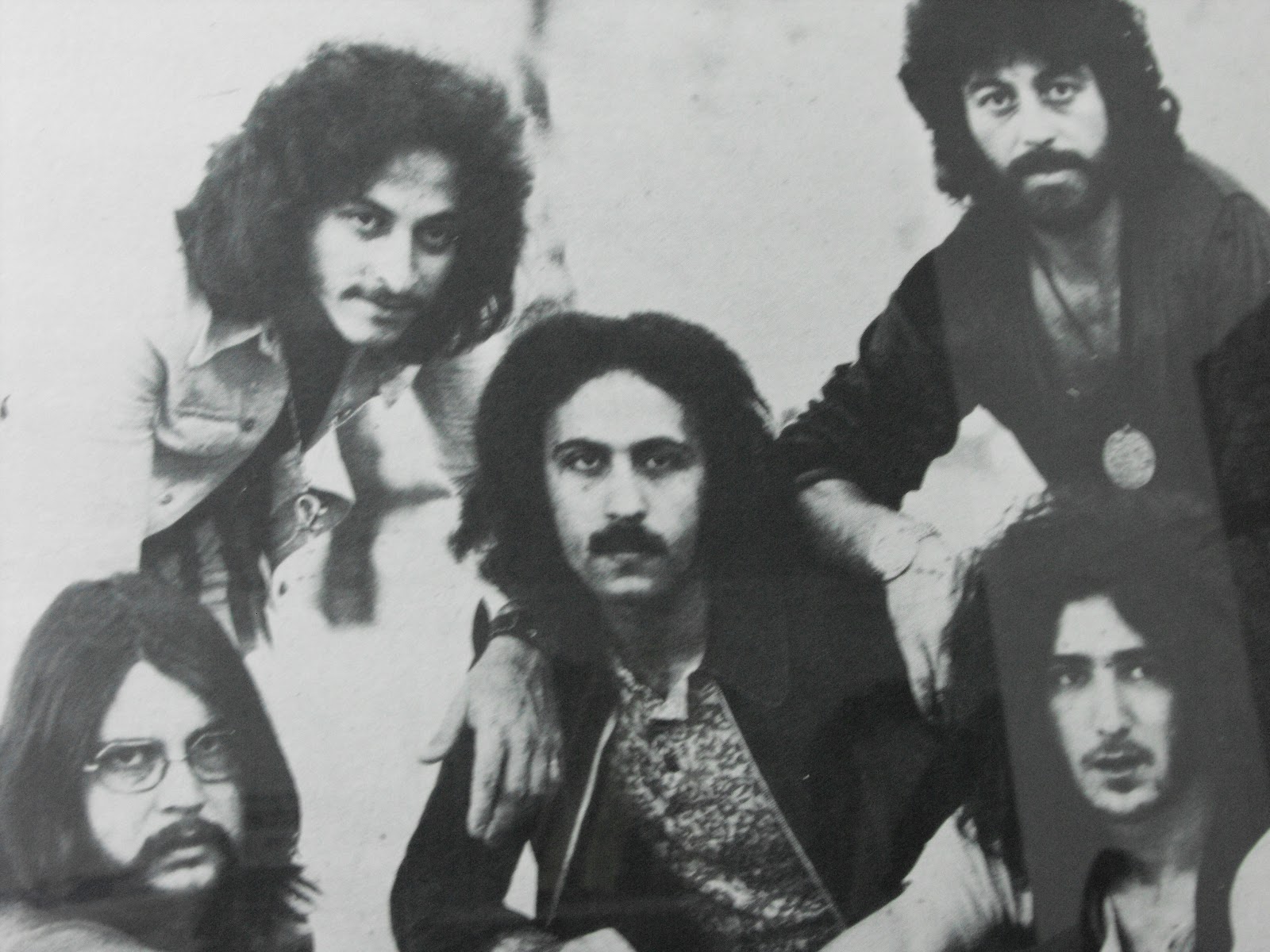
Around this period you changed your name to Jericho Jones and you started working on Junkies Monkeys & Donkeys. Where was this album recorded? You relocated to UK.
Robb: The name was changed to Jericho Jones at the time that we made the album Junkies Monkeys and Donkeys. Ellis Elias at Red Bus Company suggested that we change our name as we would be based in England and that it didn’t sound right that a band from Israel should be called The Churchills. So we got a bit of both with Jericho from the Middle East and Jones from the United Kingdom. The Jericho Jones album was recorded at Tangerine Studios in London. It was an 8 track studio. We recorded the whole album in its entirety in one mammoth 24 hour session. It was mixed later by Ellis Elias at a later date after we had returned to Israel where we were still known as the Churchills. I can’t really remember what gear we used for recording. It might have been our Marshall stacks or it could have been studio amps.
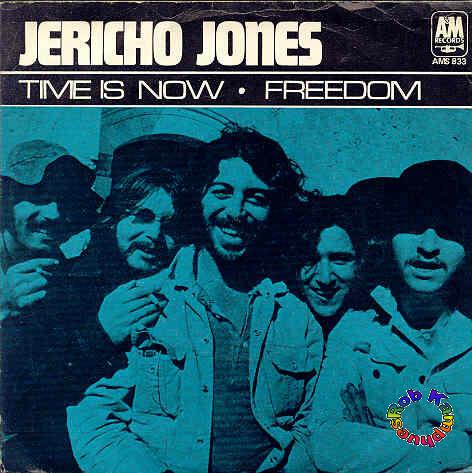
Was there any concept behind the album? How did you decide to use the name “Jericho Jones”? What about the cover artwork?
Robb: No there wasn’t any concept to the album it was just a collection of songs we had written without caring about what the current trends in music were. The songs were all written in Israel by Danny and me. We were tucked away in that little corner of the world where we were not in the mainstream of what was going on in Europe and the USA. We often thought about what people from the west would think of our music. But our seclusion and environment helped us create our own type of music. The name of the album Junkies, Monkeys and Donkeys was decided upon by Ellis Elias and was the title of one of the tracks on the album. It was written by Danny and me while in the seaside resort of Eilat.
Would you like to comment some of the songs from that LP?
Robb: My favorite tracks on the album are “There is Always a Train” (Huxley), “What Have We Got To Lose” (Huxley /Shoshan) and of course the title track. Themes of some of the songs are threat of nuclear war, changing times, and drug addiction. There are no love songs and most themes are generally serious in content. I don’t believe that we gave any of our own ideas for the album cover. That was all done by Red Bus while we were away in Israel. It shows a hand rising up from the ruins of Jericho.
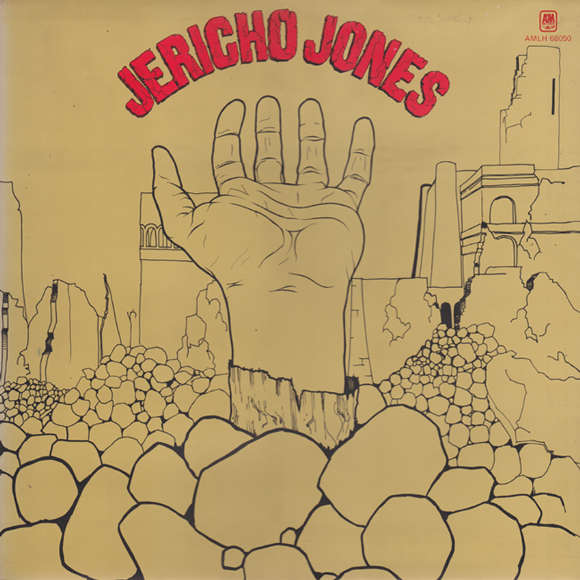
There were two releases of the album. One on the Hed Arzi label and the other one on A&M. How many copies were pressed?
Robb: I have no idea how many records were pressed in the first release probably no more than a few thousand. Since then it has been re-released a few times but I have no idea of sales figures.
Then came another change and you were now just ‘Jericho’ living in London. What happened? Did the lineup also changed?
Robb: The contract with A & M records was that we should make 2 albums. So that’s how the Jericho album came about. We were not completely comfortable as a band with the name Jericho Jones as we felt it was kind of pop sounding and so when we wrote and recorded the music for that album we decided to drop the Jones to have a more serious name for the band hence Jericho which was more in line with the current name of heavy bands. It was decided that the band would move to London on a pretty permanent basis to perform and record a second album.
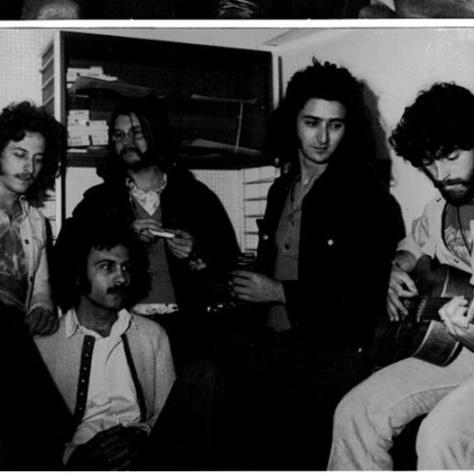
You recorded your next album as Jericho. What can you tell us about producing and recording that LP?
Robb: The making of the Jericho album was a great experience. We recorded it at Command Studios in London. It was a very professional set up and many big bands recorded there. We were able to get most of the 5 tracks down in a few takes, some first takes. We had played most of them live for some time so we had them down good. We used our Marshall gear but Haim had changed to a Hiwatt amp head. A memorable time was when we were present at the session when the strings were put on Justin and Nova.
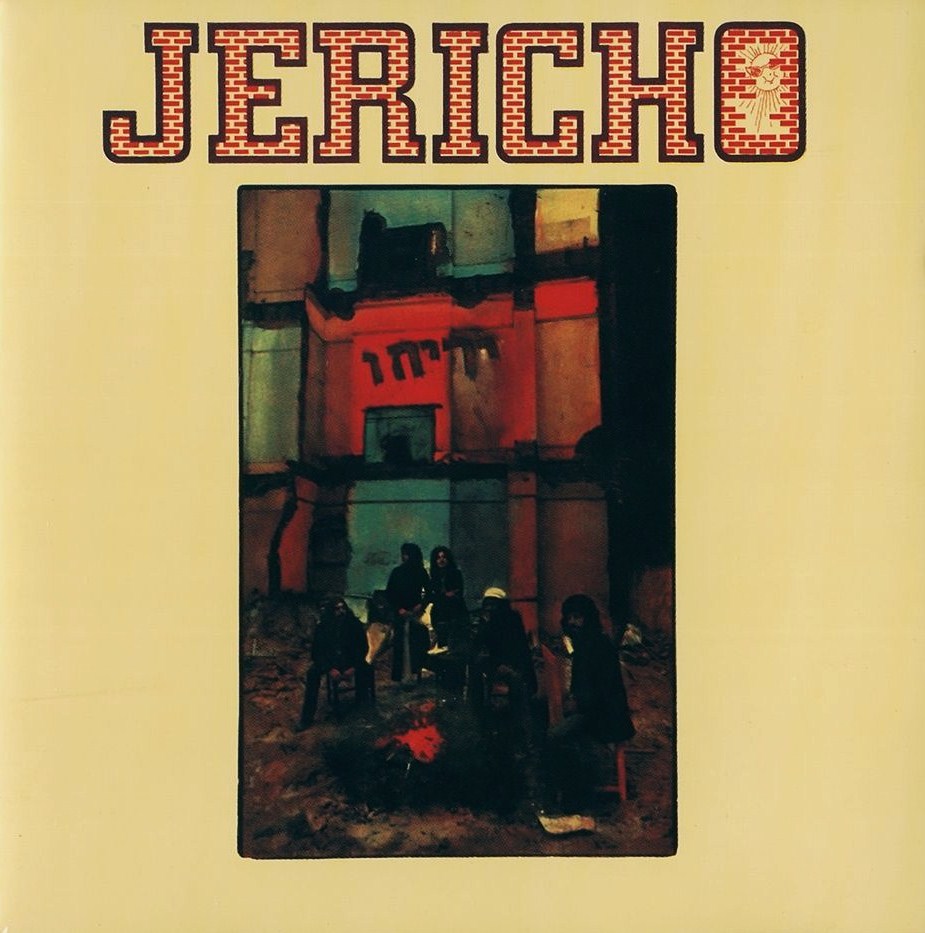
How many copies were released on A&M and what can you tell us about that cover artwork?
Robb: I don’t recall how many albums that they did in the first pressing of the Jericho album but I do remember that the first 100 copies were test pressed with a red tint which was unusual for that time. Original copies of that still exist selling for $400 /$500 each. I did get to see a copy. You had to hold it up to the light at a certain angle to see the tint. The cover once again had a theme of the ruins of Jericho. We went to an old part of London where they were demolishing some old buildings. We built a small fire and sat around it. On the walls of the background was all kinds of graffiti such as “Acid 2 pounds a tab and various other drug related writings. We had an idea that the word Jericho should appear amongst the graffiti. We were disappointed when we saw the final album cover as the photo had been touched up so much that all the other graffiti had been covered up. We felt that it should have been left as it was shot with only our band name added.
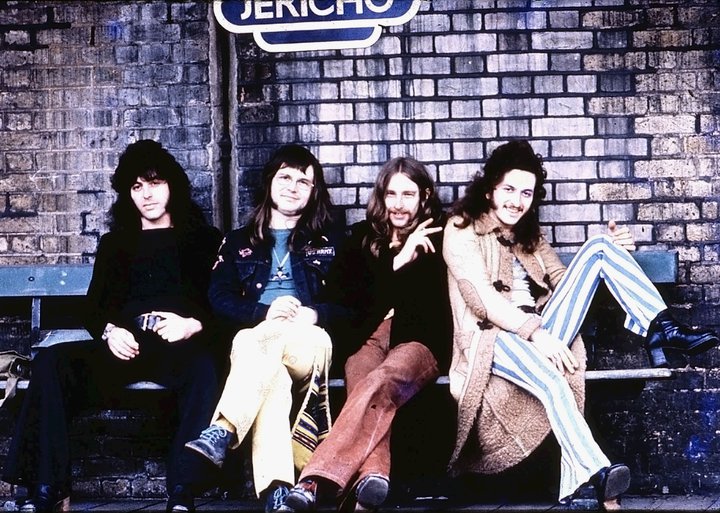
Where else beside South Africa did you tour? Did you perform there with bands such as Suck and Freedom’s Children?
Robb: Along with South Africa we played in Denmark, Holland, France, Belgium, Italy and Portugal. In South Africa we toured with Joburg Hawk. That was a very remarkable tour with too many interesting tales to tell but I will be writing all about them on my website in the future. At that time we were playing to segregated audiences. We were taking a chance as bands could get blacklisted in those days and could be banned from working on the college circuits which were essential gigs to play at if you really wanted to get known and be appreciated.
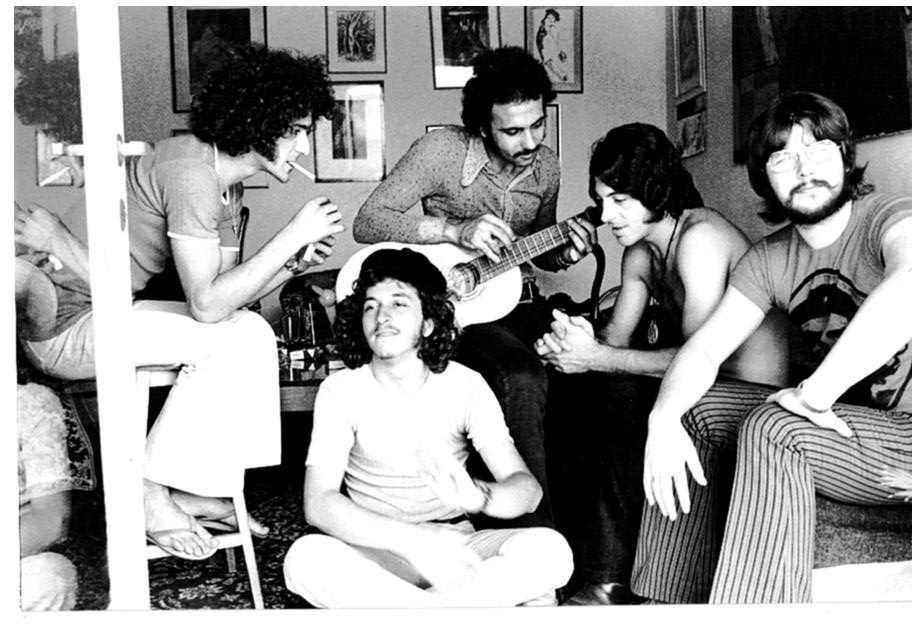
Would you share your insight on the albums’ tracks?
“Ethiopia”
Robb: This song was born out of some kick ass weed that an American chick brought us from Africa, supposedly Ethiopia. I got the start of the instrumental part and we took it from there.
“Don’t You Let Me Down”
Robb: Written by Miki Gavriellov and a good Mid – East flavored rock song. Miki’s first major composition.
“Featherbed”
Robb: It was started by me from a riff that I was fooling with on the piano and complimented by some good riffs from Danny and the band. This was a first take and a good jam.
“Justin and Nova”
Robb: One of my all-time favorites which I wrote and conceived in one shot. It all came to me one night in Israel. I was married and had a 3 month old son Justin. The story tells how my children go on a joy ride with Goran an extraterrestrial from Aurigae in his X – oplane. What Justin and Nova didn’t know was that due to the difference in travel time when they would return their mother and I would have been long gone. I sing the lead vocal on the record with great harmonies and a brilliant last verse sung by Danny.
“Kill Me With Your Love”
Robb: Another favorite of mine written by Danny and me. with some great riffs and a trippy intro with the song going through many moods and changes. As one might imagine it is a song full of sexual references. We came up with an idea to have Danny have sex with a girl on top of the piano while we were recording the song and so get all the real sound effects but sorry to disappoint everybody but that never happened.
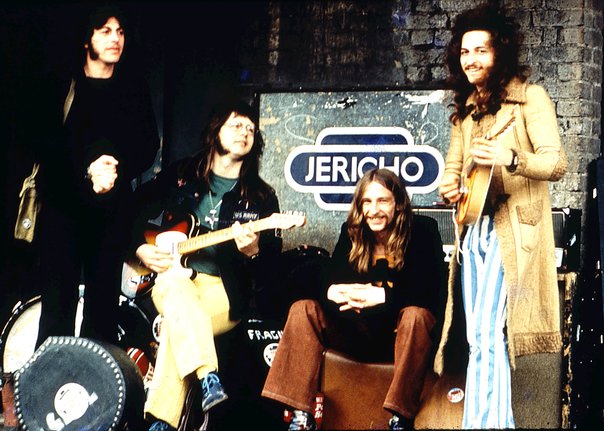
What was typical live set?
Robb: Our set list was comprised only of our original songs. I can’t remember details of how they came in the sets, but that’s all we played, numbers from our albums.
What happened next? What currently occupies your life?
Robb: In 1973 we broke up due to all kinds of problems with band members, management, record company etc. There was one encouraging thing which was Peter Grant then Led Zeppelin’s manager wanted to take over Jericho but due to a breakdown of negotiations between Red Bus, Grant and our contractual commitments it never happened and the Walls of Jericho came tumbling Down. Today Miki, Haim and Danny all live in Israel and are still in the business with successful individual careers. Drummer Ami Trebich passed away a few years ago from a sudden heart attack on Yom Kippur and is sorely missed by us all. I live in Miami where I write music and perform here and there. I am also involved with Ice Cream distribution.
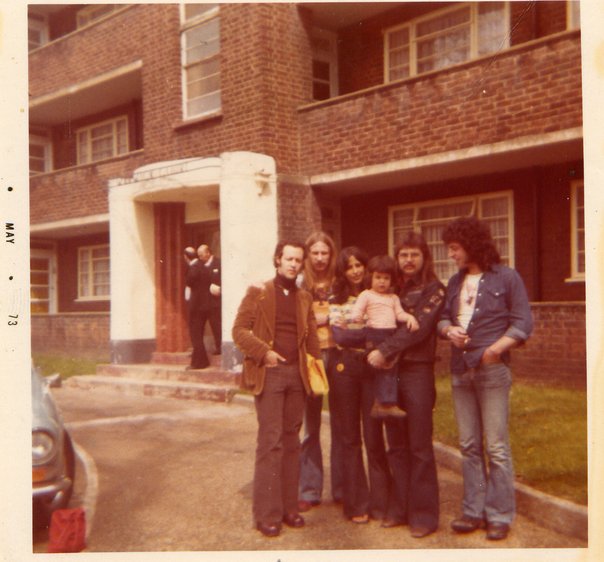
I would like to thank you again for taking your time to share the story about one of the most underrated bands of all time. Would you like to add anything, perhaps a message to It’s Psychedelic Baby readers?
Robb: I hope that your readers will find this information interesting to read about the Churchills / Jericho Jones / Jericho saga. It makes me happy and a bit surprised that after 40 years our music is still played and appreciated by all demographics stretching from 20 year olds all the way up to people like me in their 60’s. To all fans Danny and I are working on songs for what we hope will be a new Jericho album.
– Klemen Breznikar

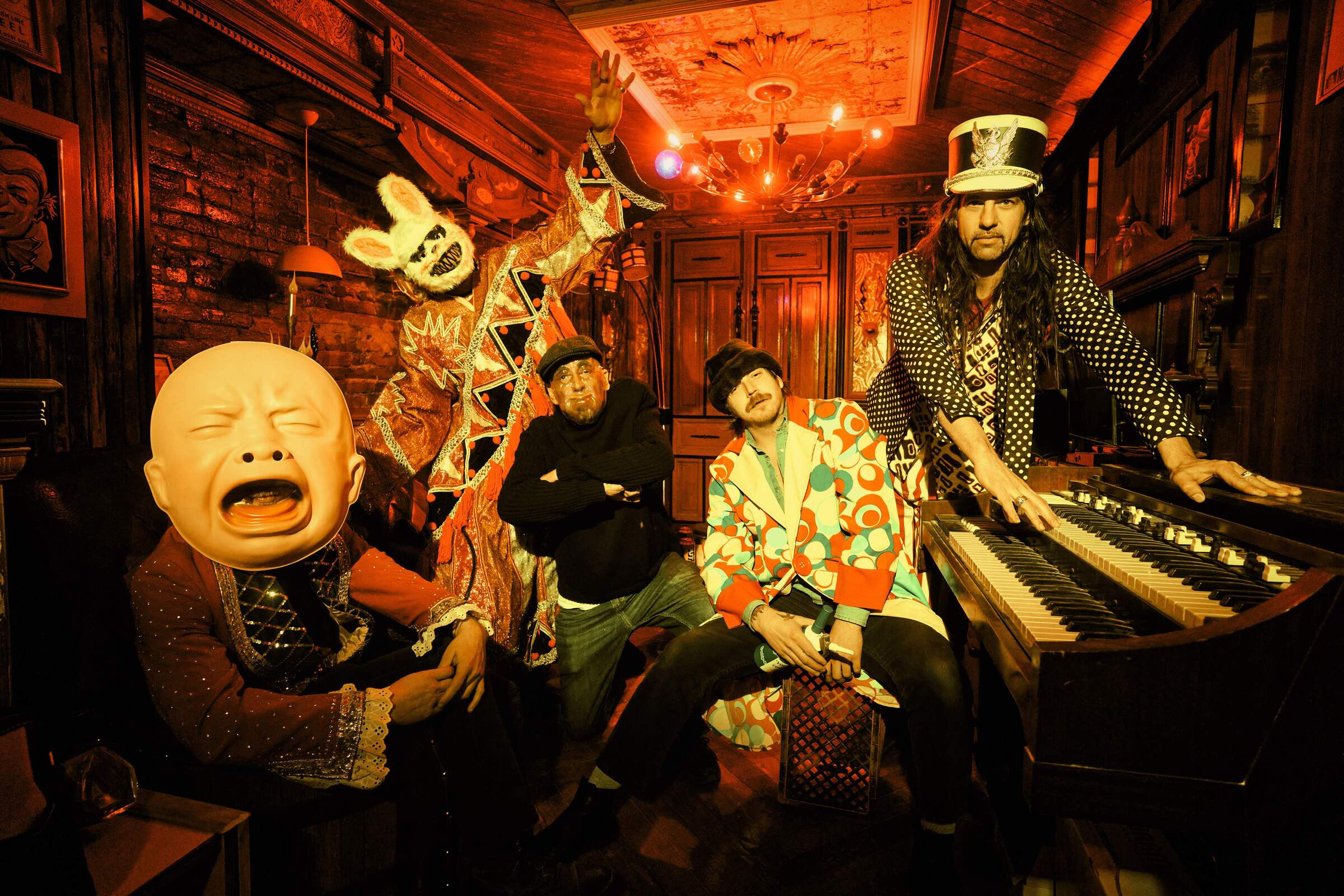
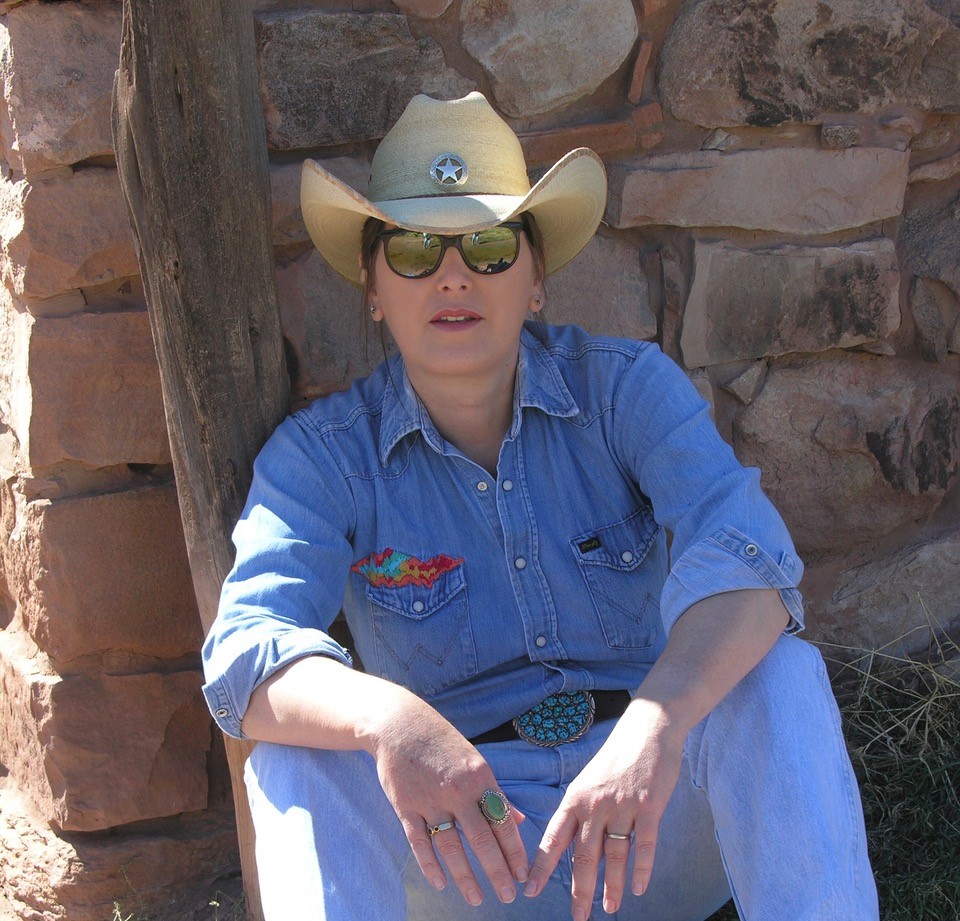
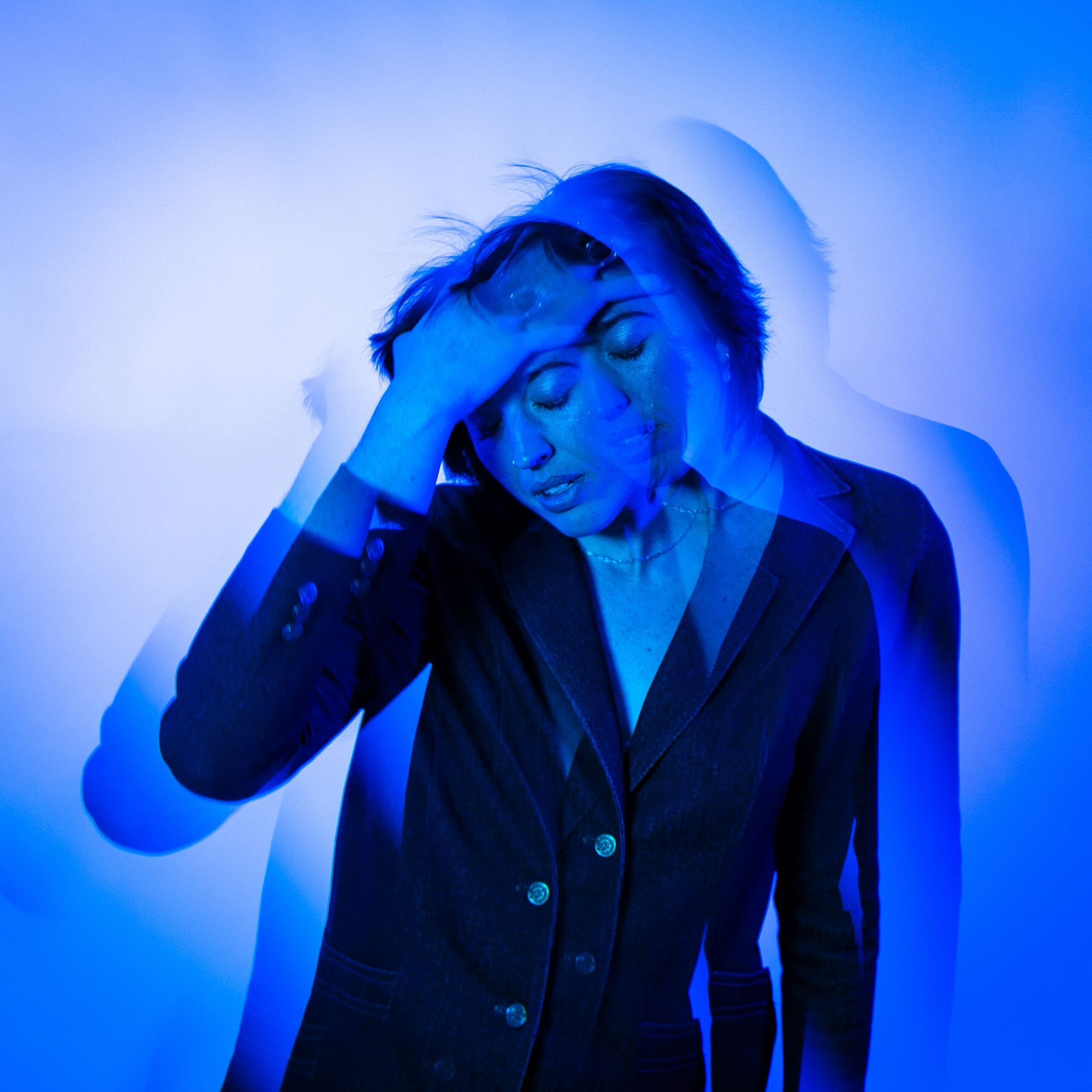
One of the best interviews I've read on this blog. Great work Klemen!
Wow this is fantastic, a great resource to find out about this important band. Thanks Klemen.
Rich
http://www.aftersabbath.com
This is a really, seriously impressive find. Great interview
Great read! I heard their 1972 album yesterday and I am absolutely amazed by the song Justin and Nova. It is virtually one of the greatest prog rock compositions ever written. It will never cease to astonish me how can "music business" successfully prevent such great bands to carry on and makes them tumble down instead. Especially when they really enjoy playing together. Do you know Robb, Danny and Haim jammed together in 2011 and there is a footage of them on youtube playing Ethiopia? They still do rock and Danny lost nothing of his voice. This talk of writing new material is therefore really optimistic. Fingers crossed one day it sees the light of the day (just as it was with Comus). Keep rocking, guys!
Wow!, thanks for sharing this, great band Jericho